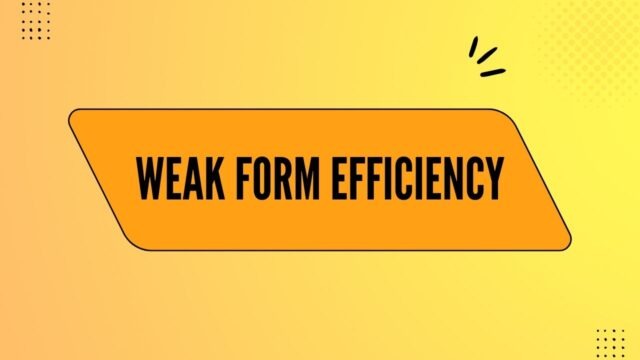Water Exclusion Clause
What is 'Water Exclusion Clause ' There is a provision in a homeowner's or renter's insurance policy that prohibits coverage for certain water-related claims. A water exclusion clause is most likely to apply to water damage caused by flood, tsunami, standing water, groundwater, and drain/sewage backup, among other types of water damage. Some forms of excluded water damage may be...
Waiver Of Coinsurance Clause
Waiver Of Coinsurance Clause What is 'Waiver Of Coinsurance Clause ' Language in an insurance policy that says the insurance company will not require application of the part of the policy that divides responsibility for an insured loss between the insurance company and the policyholder. The coinsurance clause is usually only waived for small losses, such...
Weak Hands
What is 'Weak Hands' 1. The intention of futures contract holders not to receive delivery of the underlying. 2. Retail traders in the forex market who abide by the conventional wisdom that when a pattern is broken, get out. Explaining 'Weak Hands' 1. Futures contract holders with weak hands are generally considered to be...
Wealth Psychologist
What is 'Wealth Psychologist' A wealth psychologist is a mental health professional who specializes in issues relating specifically to wealthy individuals. Wealth psychologists are also called money psychologists or wealth counselors. Wealth psychologists help their ultra-rich clients deal with issues such as the guilt they feel about being wealthy, or advise on inheritance issues and counsel parents...
Waiver Of Premium Rider
What is a waiver of premium rider A waiver of premium rider is an insurance rider that waives the policyholder's obligation to pay premiums if the policyholder becomes disabled. If the policyholder becomes disabled, the insurance company will continue to pay the policy benefits. it is typically used in disability insurance policies. It can also be found in some life...
Waterfall Payment
What is a 'Waterfall Payment' A waterfall payment is a type of payment scheme in which higher-tiered creditors receive interest and principal payments first, while the lower-tiered creditors receive interest and principal payments after the higher-tiered creditors are paid in full. Debtors typically structure these schemes to prioritize the highest principal loans first as they are likely...
Waiver Of Restoration Premium
Waiver Of Restoration Premium What is 'Waiver Of Restoration Premium ' A clause in an insurance policy that says that the insurance company will not require the policyholder to pay a fee to get back the level of coverage that their policy initially provided before any claims were paid out. If a policy does not contain...
Water ETF
What is a water ETF and how does it work A water ETF is an exchange traded fund that invests in companies involved in the global water industry. The fund may hold stocks of companies that produce or sell water-related products and services, such as filters, pumps, and irrigation systems. It may also invest in companies that are involved in...
Weak Form Efficiency
What is Weak Form Efficiency In finance, weak form efficiency is the idea that prices reflect all information that is publicly available. In other words, it is not possible to beat the market by analyzing past price data because all of the relevant information is already reflected in current prices. The weak form efficiency hypothesis was first proposed by Eugene...
Wage Expense
What is 'Wage Expense' In financial accounting, wage expense represents payments made to non-manufacturing employees, regardless of whether they are hourly or salaried. Depending on the presentation, this line item may also include payroll tax expenses and other benefits paid to employees. Wage expense is recorded as a line item in the expense portion of the income statement. Explaining 'Wage Expense' Under...


































